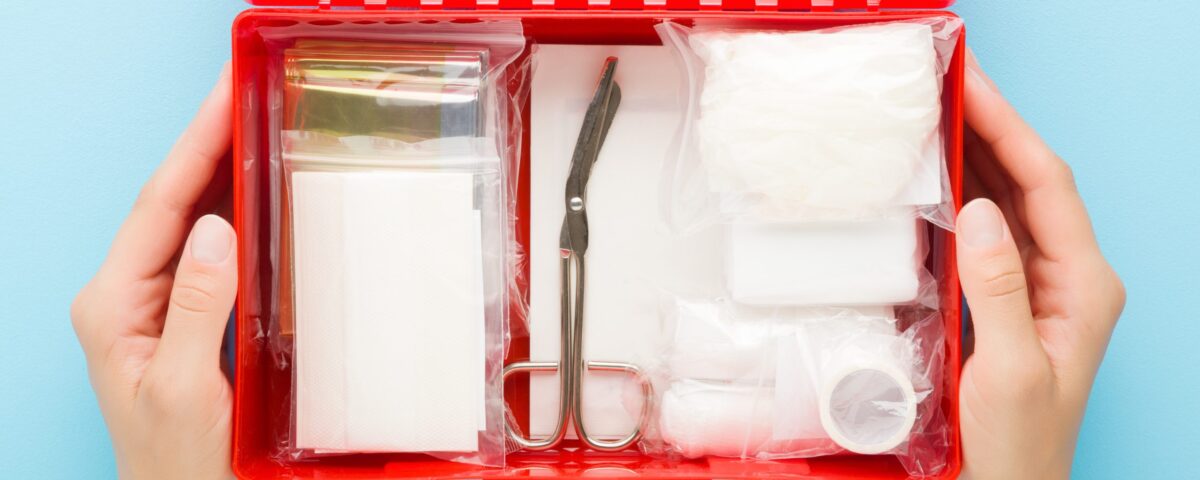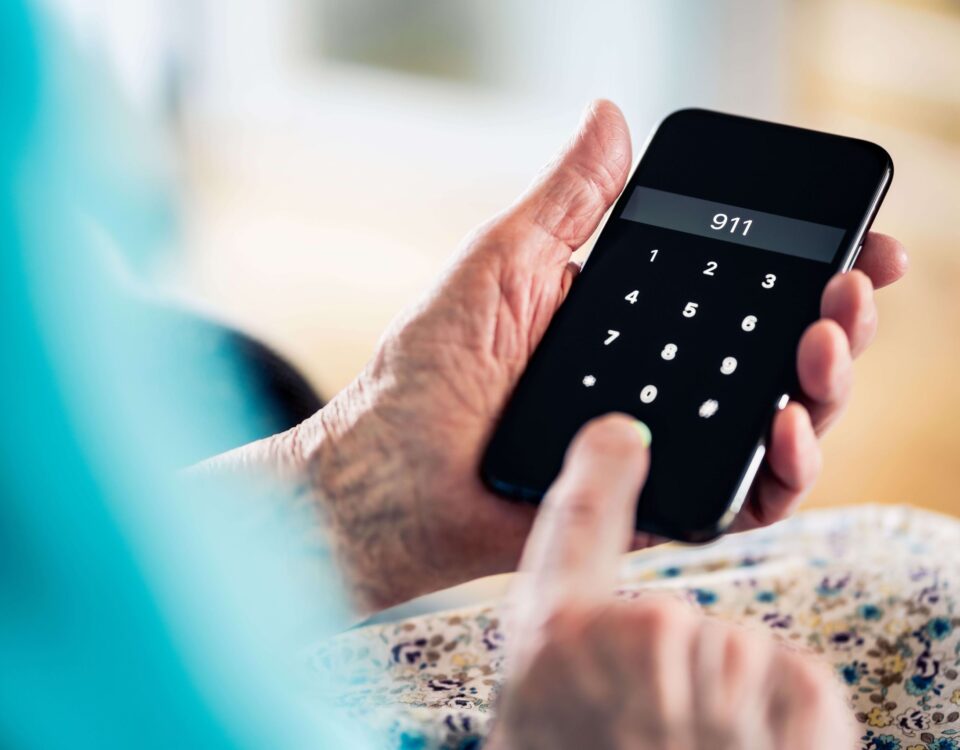- Have any questions?
- 412-123-4567
- noreply@upmc.com
Why Being Aware of Your Surroundings is Important When Emergencies Happen

Emergencies can happen when you least expect it — whether you're at home, at work, or in another public setting. When an emergency does happen, every minute matters. It's important to be aware of your surroundings so that you can act quickly and potentially help save a life.
Emergency Preparedness at Home
Did you know most emergencies happen at home? Given the amount of time we spend at home, it's critical to know how to respond in case an emergency happens. There are many different things you can do to keep yourself and your family safe.
- Create an emergency contact list. Write down phone numbers you'll need for various emergencies — 911, local police and fire departments, a poison control center, family members and/or close friends, doctors, and insurance companies (home, care, and medical). Have the list in a prominent place in your home, such as on your refrigerator. Make sure everyone in your family knows where the list is and what numbers they should use in case of emergency.
- Keep a first-aid kit and emergency kit handy. Make sure you are well-stocked with items for many different types of medical emergencies. For times when your area loses electricity or water, one way to be prepared is to have food, water, cash, and other supplies on hand to last a few days.
- Buy a fire extinguisher. Keep a fire extinguisher in an easy-to-grab place in case of fire and in places where a fire may be more likely, such as the kitchen. Make sure your family knows where it is and how to use it.
- Check your smoke and carbon monoxide detectors. You should change the batteries in your smoke alarms and carbon monoxide alarms every six months to prevent injuries and death from fires and carbon monoxide poisoning. You should also ensure that you have enough smoke and carbon monoxide detectors for your home. The National Fire Protection Association requires smoke alarms inside and outside each room where someone sleeps, as well as on every level of a house. You should have carbon monoxide alarms on each level of the house and outside each sleeping area, according to the Consumer Product Safety Commission. You can purchase combination smoke and CO detectors.
- Child-proof your home. If you have children, take every possible step to keep them safe. Keep them away from the stove when you're cooking, store hazardous substances in cabinets or other hard-to-reach places, and secure heavy objects to walls to prevent tip-overs. Buy toys that are age-appropriate and aren't choking hazards.
- Practice your exit strategy. In case of fire, know what to do and where you should go. Practice a fire drill with your family members so they know how to react. Consider buying an escape ladder for floors that have only one way out.
- Be trained. Take the time to learn CPR and Stop the Bleed so you can act appropriately when a medical emergency happens.
Emergency Preparedness in Work Surroundings
An emergency in a work setting can happen to you, a colleague, or someone else in your building. Whether it's a power outage from extreme weather or a co-worker experiencing a heart attack, it's important that you are prepared for an emergency at work so you can act fast and potentially save a life.
- Know your office's emergency action plan (EAP). Many employers are required by law to have an EAP and train their employees on how to respond in various emergency situations. You should learn your workplace protocols and participate in any training exercises to know how to respond.
- Know where to find emergency supplies. Learn where your workplace keeps important emergencies supplies like first aid kits. For cardiac arrest-related emergencies, it's important to know where the nearest automated external defibrillator (AED) is located so you can help improve the outcome.
- Be aware of emergency exits and evacuation procedures. If an emergency arises that forces you and your coworkers to evacuate, you should know where to go and what to do. Review your workplace's fire safety and weather safety plans.
Being Prepared for an Emergency in Other Surroundings
Because emergencies can happen at any time in any place, it's important to be ready no matter where you are. Even if you're away from home, there are still some things you can do to be prepared.
- Know your surroundings. If you're in a rural area, it's important to note first responders could take longer to reach you and you may be further away from a hospital. Make sure you keep track of where you are or have distinguished landmarks in mind. That way, you can provide your specific location if you need to call 911 for an emergency situation.
- Bring an emergency survival kit with you. An emergency survival kit should contain a first aid kit and other items that can help in case of an emergency. Potential items include non-perishable food, water, money, a blanket, a flashlight, extra batteries, and more. The American Red Cross has a checklist of supplies you should keep in your survival kit.
- Have your phone charged and ready. It is crucial to be able to call for help when an emergency happens. Make sure you have a charged cell phone ready to call 911. You may want to consider storing extra chargers in your bag, your car, or at your workplace so you have one handy.
What to Do in An Emergency
When an emergency does happen, it's important that you are prepared. Here are some critical steps you can take during any type of emergency.
- Stay calm. Emergencies can be scary, so it's important that you stay calm.
- Call 911. Tell the dispatcher your name and give your location. If you are unsure where you are, look for notable landmarks (buildings, statues, billboards) or street signs. Next, explain the type of emergency. Be sure to stay on the phone with the dispatcher and follow any instructions that the dispatcher gives you.
- Be aware of your surroundings. Assess the emergency and where you are. If you are in danger, try to get yourself to a safer location if possible.
- Follow your emergency plan. Whether you're at home or at work, following an emergency plan will help you keep the situation in control as much as possible.
- Respond to medical emergencies properly. There are several medical situations that require immediate intervention. Knowing what to do can save lives.
- If someone is having a heart attack or experiencing cardiac arrest, you may need to perform CPR or use an AED.
- In cases of uncontrolled bleeding, know how to stop the bleed and use a tourniquet if the bleeding persists.
- For choking emergencies, the Heimlich maneuver can remove food or other objects from someone's windpipe.
- In cases of opioid overdose, naloxone is a lifesaving drug that temporarily reverses the effects of opioids.



